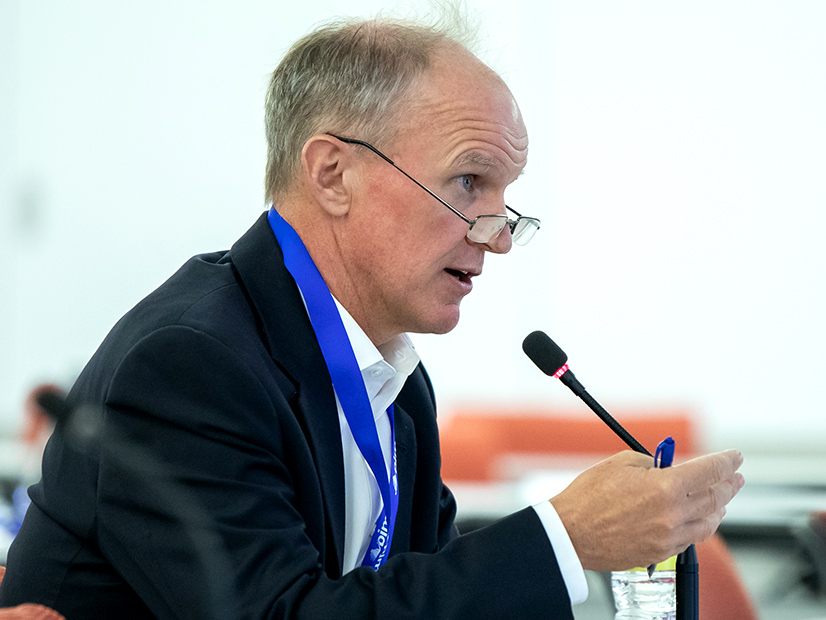CAMBRIDGE, Md. — PJM’s Members Committee on Wednesday rejected a proposal from the Illinois Citizens Utility Board to require that at least one member of the Board of Managers have clean energy qualifications.
The proposal would have amended PJM’s Operating Agreement to add a qualification that one board member “shall have expertise and experience in the development, integration, operation or management of clean energy resources.” The amendment failed with 32% support, well short of the two-thirds margin required in the sector weighted vote.
Albert Pollard of CUB told the committee in September that PJM’s board needs expertise in carbon-free generation as the grid transitions away from fossil fuels.
“This is not a proposal to have a clean energy advocate on the board, and I would oppose such a thing,” Pollard said. “This is clean energy expertise. This is someone who, through their leadership, can work with the other experts on the board to call balls and strikes,” he said.
Paul Sotkiewicz of E-Cubed Policy Associates said the focus should be on promoting reliability rather than having expertise in any one form of generation, which he said would introduce potential bias and undermine the board’s independence.
“This would lead to some advocates on the board because let’s face it, everyone comes with some bias,” he said.
Pollard said the amendment would not change the composition of the board as there are currently sitting members who already meet the qualifications the CUB was seeking to add. During the MC’s first read of the proposal on Sept. 21, PJM CEO Manu Asthana and General Counsel Chris O’Hara clarified that the measure would not be adding a dedicated seat, but rather a qualification. (See “Board Member with Clean Energy Expertise,” PJM MRC/MC Briefs: Sept. 21, 2022.)
Adrien Ford of Old Dominion Electric Cooperative said that based on her experience on the nominating committee she believes the existing process is sufficient for determining the experience that would create the strongest board composition. Additional requirements would limit the committee’s flexibility, she said.
“The nominating committee really works to make sure we have the core expertise needed on the board [and] has the flexibility … to fill in what additional experience is needed on the board,” she said.
Jason Barker of Constellation Energy said the amendment would reflect the discussions at PJM’s Annual Meeting regarding the challenges posed by the clean energy transition. Ensuring that the board has expertise in the types of resources that will increasingly dominate the grid will be critical to managing reliability, he said.




